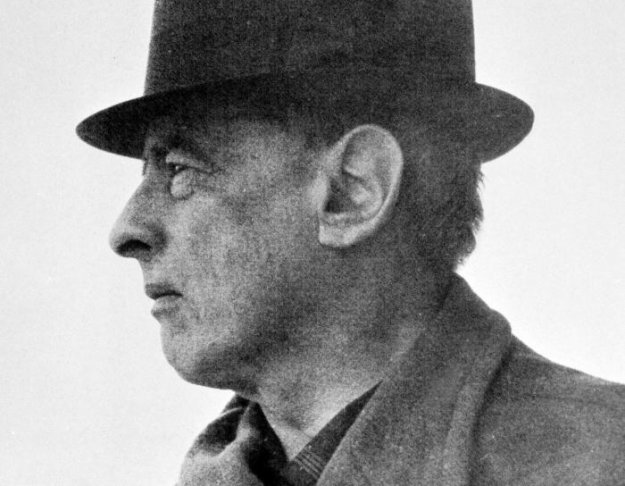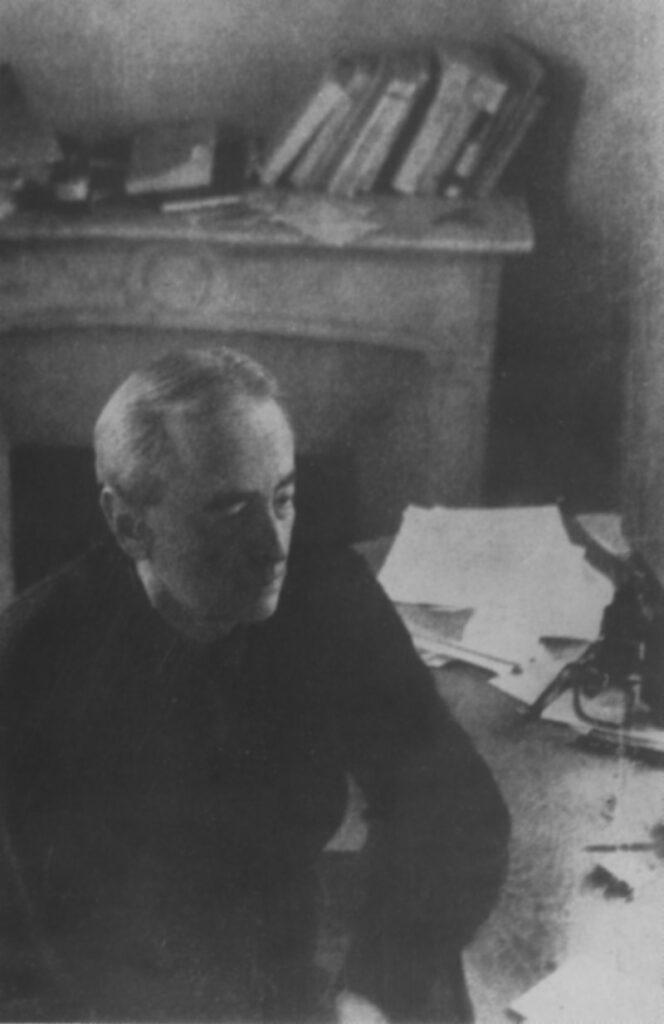Witold Gombrowicz is one of the most intriguing and complex figures in 20th-century Polish literature. Known for his rebellious spirit, sharp wit, and unorthodox approach to form and identity, Gombrowicz’s works challenged conventions, questioned social norms, and explored the fluidity of human nature. His writing remains a cornerstone of Polish literary heritage, continuing to provoke and inspire readers long after his death.
Early Life and Education
Witold Marian Gombrowicz was born on 4 August 1904 in Małoszyce, near Kielce, into a family of landed gentry. His upbringing in the Polish countryside exposed him to the complexities of class divisions and the rigid social structures of early 20th-century Poland—themes that would later permeate his literary works. Gombrowicz was educated in Warsaw, where he attended the prestigious Stefan Batory Gymnasium before studying law at the University of Warsaw, graduating in 1927.

Despite his legal education, Gombrowicz’s true passion lay in literature and philosophy. The vibrant intellectual climate of interwar Warsaw, combined with his exposure to modernist currents, nurtured his creative ambitions. His early writings reflected an experimental approach, hinting at the irreverent style that would later define his most celebrated works.
Literary Debut and „Ferdydurke”
Gombrowicz made his literary debut in 1933 with the short story collection Pamiętnik z okresu dojrzewania (Memoirs from a Time of Immaturity). However, it was his first novel, Ferdydurke, published in 1937, that catapulted him to prominence. The book, a satirical and grotesque exploration of identity, immaturity, and societal conformity, remains his most iconic and widely studied work.
Ferdydurke revolves around the experiences of Józio, a thirty-year-old man inexplicably transformed back into his teenage self. Through absurd and often surreal episodes, Gombrowicz dissected the artificiality of cultural norms, exposing the infantilisation imposed by societal expectations. The novel’s linguistic playfulness, fragmented structure, and subversive humour set it apart from the dominant literary trends of the time.
Critics were divided. While some hailed Ferdydurke as a groundbreaking masterpiece, others dismissed it as incomprehensible and scandalous. Nevertheless, Gombrowicz’s defiance of literary orthodoxy earned him a place among Poland’s most avant-garde writers.
Exile in Argentina

In 1939, on the eve of World War II, Gombrowicz embarked on a transatlantic voyage to Argentina aboard the Chrobry as part of a cultural mission. When war broke out, he chose to remain in Buenos Aires, effectively beginning a 24-year-long exile. Cut off from Poland and facing financial hardship, Gombrowicz worked as a bank clerk while continuing to write.
Life in Argentina was marked by isolation and obscurity. Despite his literary achievements in Poland, Gombrowicz was virtually unknown in South America. His efforts to engage with Buenos Aires’ intellectual circles bore limited fruit, though he gradually cultivated a small but loyal following. During this period, he wrote his Dziennik (Diary), a literary and philosophical journal that chronicled his reflections on art, exile, and personal identity.
In 1953, Gombrowicz published Trans-Atlantyk, a semi-autobiographical novel blending elements of satire, parody, and pastiche. Drawing from his experiences in Argentina, the book juxtaposed Polish patriotism with existential self-examination, further cementing his reputation as a provocateur unafraid to challenge national myths.
Return to European Prominence
Gombrowicz’s return to literary prominence came in the 1960s, when his works began receiving critical acclaim in France. Translations of Ferdydurke and Trans-Atlantyk resonated with French intellectuals, particularly those drawn to existentialism and postmodernism. Gombrowicz relocated to France in 1964, where he settled in Vence, near Nice, and continued his writing.
During this period, he produced some of his most acclaimed works, including the novels Kosmos (1965) and Pornografia (1960). Pornografia, set in wartime Poland, explored the entanglement of eroticism and violence, presenting a dark and unsettling meditation on human desires. Kosmos, on the other hand, veered into metaphysical territory, using a seemingly mundane murder mystery to probe the chaotic and fragmented nature of reality.
Gombrowicz’s growing international stature culminated in his nomination for the Nobel Prize in Literature in 1968, though he ultimately lost to Yasunari Kawabata.
Theatrical Contributions and Legacy
In addition to his novels and essays, Gombrowicz left a lasting imprint on Polish theatre. His plays, notably Iwona, księżniczka Burgunda (Ivona, Princess of Burgundy) and Ślub (The Marriage), exemplify his penchant for absurdity and subversion. These dramas interrogate themes of power, authority, and social masks, often employing grotesque scenarios to highlight the instability of human relationships.
Though Gombrowicz never returned to Poland, his influence permeated the country’s cultural landscape. His works, once censored by the communist regime, gained renewed recognition in the post-communist era. Today, Gombrowicz is celebrated as a literary icon whose rebellious spirit and unyielding pursuit of artistic freedom continue to inspire new generations of writers and thinkers.
Death and Commemoration
Witold Gombrowicz passed away on 24 July 1969 in Vence, France, following a long battle with asthma. His remains were initially interred in France, but in 2010, his ashes were ceremoniously returned to Poland and laid to rest at the Powązki Military Cemetery in Warsaw.
Gombrowicz’s legacy endures through numerous literary awards, scholarly conferences, and adaptations of his works. The Gombrowicz Festival, held annually in Radom, celebrates his contributions to literature and theatre, drawing international audiences and cementing his status as one of Poland’s greatest literary figures.
